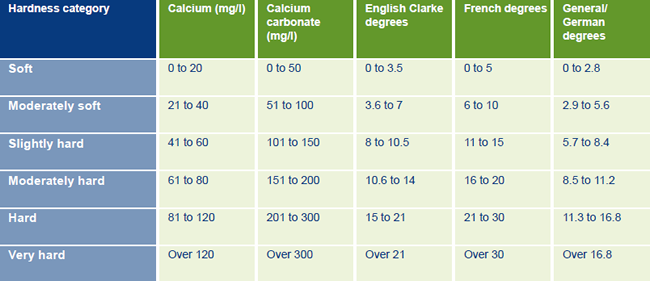Do you have hard water?
Rainwater is naturally soft as it contains only small amounts of minerals.
As the water passes through limestone and sandstone rocks, minerals (calcium or magnesium carbonate) in the rocks are dissolved in the water, making it hard.
We don’t have any chalk in our area of supply, most of our area is sourced from moorland rivers and reservoirs and is classed as soft or moderately soft. In East Devon the water comes from deep underground boreholes and this water is classed as hard.


If your water is classed as hard, you may choose to install water softeners in your home. However the Drinking Water Inspectorate recommends you don’t soften the water supply used for drinking water because it can increase the levels of sodium which is harmful if you have high blood pressure. It can also be more corrosive to metal pipework which leads to higher concentrations of metal in the water.
What water hardness can mean for appliances and items within your home
|
Item |
Soft water areas |
Hard water areas (mainly East Devon area) |
|
Kettles |
No special requirements May discolour over time |
Avoid re-boiling the same water to reduce limescale build-up. |
|
Boilers and central heating systems |
No special requirements |
Set the boiler to 60-63 degrees to avoid limescale. |
|
Irons |
No special requirements |
Use the lowest appropriate temperature to reduce limescale build-up. |
|
Washing machines |
Use the lower amounts of washing powders and fabric conditioners recommended by manufacturers |
May need more powder and conditioners. Limescale may build up over time. |
|
Soap and washing-up liquid |
Small amounts needed |
May take longer and more to build up a lather. |
|
Dishwashers |
Use the lower settings recommended by manufacturers |
Use the higher settings for softening as recommended by the manufacturer. Consider using salt tablets. |
|
Baths and fittings |
No special requirements |
Limescale likely to build up and may require regular use of anti-limescale cleaners
|

